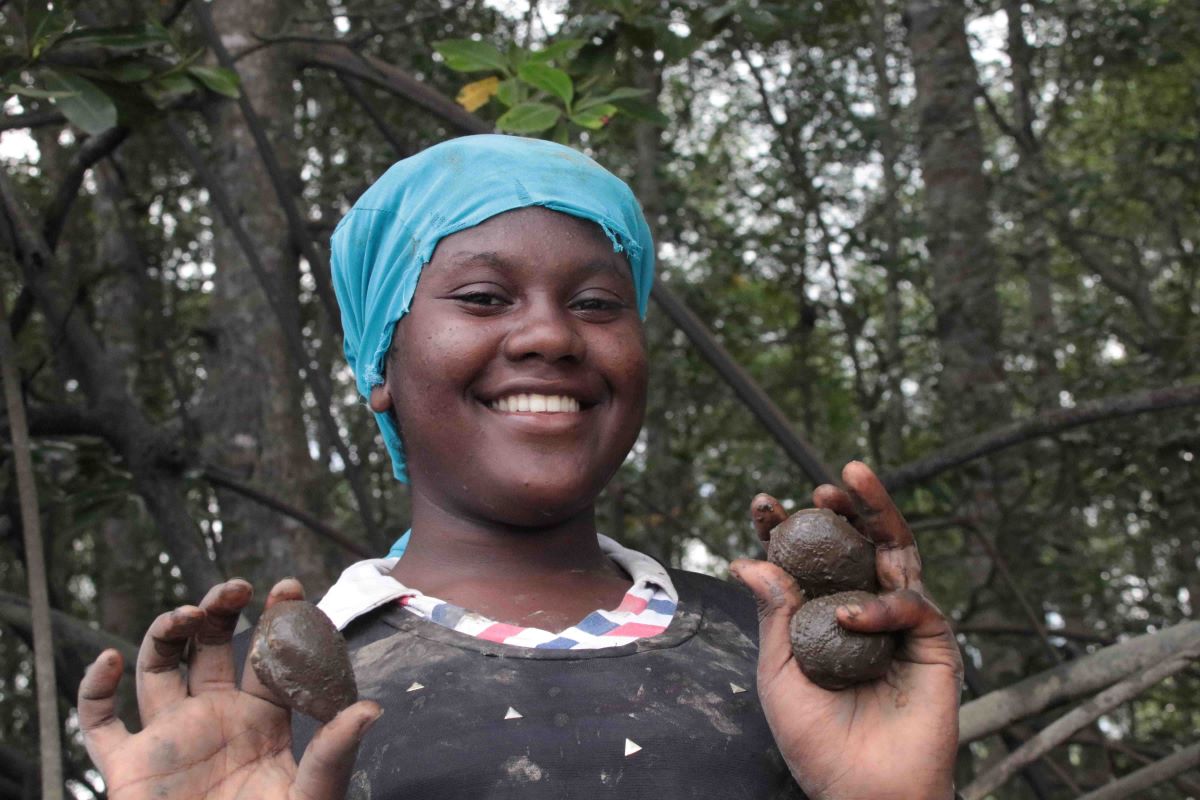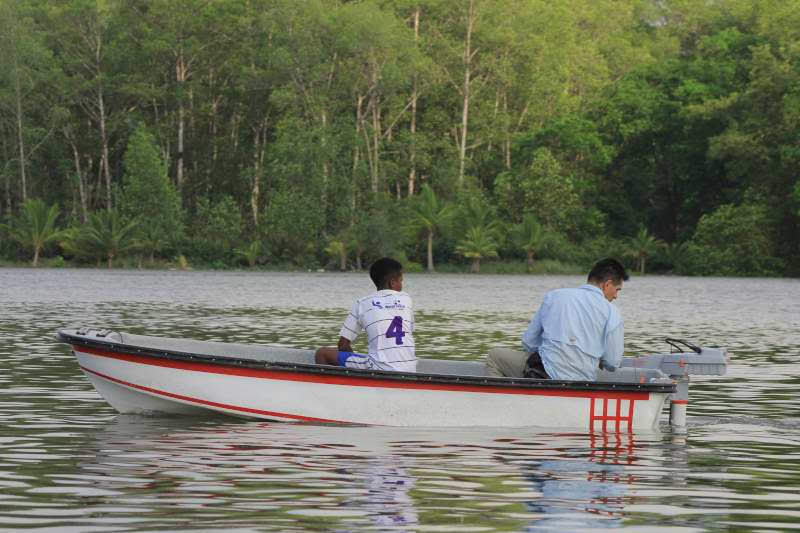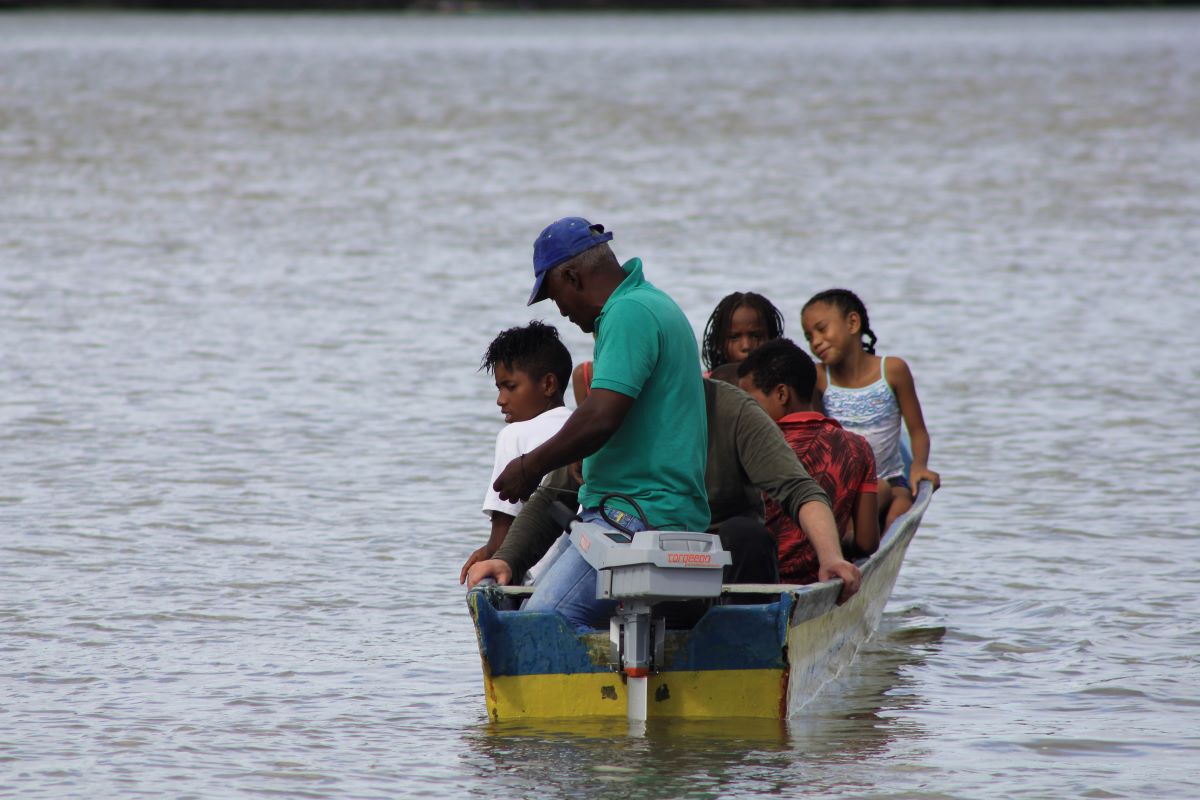Nautical electromobility
We drive the energy transition by promoting better living conditions for communities and contributing to climate change mitigation.
What do we do?
We recognise mobility as one of the fundamental needs of communities, important for the development of their activities and as a strategic flow channel for goods and services. For this reason, we believe in mobility as a transversal axis in the articulation of the social, economic and environmental spheres, especially in rural areas with a lack of infrastructure and unsatisfied basic needs.
We have identified that in these areas, water (rivers, seas, lagoons) represents the roads and spaces of economic activity where transport activities of passengers, goods, products and services are carried out, being in many cases, the only way to generate connections and proximities.
However, the aquatic environment has not been an effective channel and the use of traditional forms of mobility implies, among other things, high fuel prices, negative impacts on the natural environment and the generation of highly complex economic and social scenarios for communities. The transition to renewable energy sources is an excellent solution, but, it is especially difficult to achieve in disconnected areas where the lack of basic services (water, energy), and low coverage in education and health, make these areas prone to excessive exploitation of resources and simultaneously restrict the possibility of including sustainability in their daily lives.
We believe that needs can be turned into opportunities and we want to promote a transformation towards efficient energy consumption in protected areas, independent of fossil fuels, capable of improving the living conditions of these communities. Based on this principle and by assessing the specific needs of each area, we jointly design electric mobility strategies in aquatic ecosystems and accompany the management processes of natural systems, monitoring and surveillance as well as solutions that involve social, economic and environmental components. In this way, we seek to turn these places into productive areas, with thriving communities and conserved ecosystems. We use mobility as a tool to catalyse this transition.
Electromobility projects
First electric school boat will benefit more than 21 students of Bahía Málaga, Colombia

Our Story
This journey started on the Cuyabeno River in an attempt to test Torqeedo’s electric outboard engine technology in Latin America. No other major attempts had been made to implement this technology for productive and economic purposes or daily activities, thus electric motors operating mainly in European lagoons in luxury boats. However, it quickly became a dream: to transform aquatic mobility in rural areas towards technological advancements that use renewable energy sources, improving living conditions, preserving the natural environment and providing sustainable and productive alternatives for communities.
In 2015, Prof. Gordon Wilmsmeier, member of the United Nations Economic Commission for Latin America and the Caribbean (ECLAC) and his team embarked on a 4-day tour. They navigated the waters of the Putumayo and Cuyabeno rivers on a boat powered by three electric outboard motors (Torqeedo Cruise 10.0). They travelled 175 km, managed to showed the technology to communities and verified the efficiency in these mighty rivers. The results of this journey, the reaction of the communities and the performance of the engines is narrated by Francisco Schuler in the documentary “Tres Fronteras” (Salamandra Cine)
At the time, Kara Solar Foundation undertook, as well, a navigation journey. This 18,000 km trip aimed to transport the first solar boat from Sucumbíos located in the northern part of Ecuador, all the way to the territory of the Achuar indigenous community, located in the Amazon. The boat, designed with the community and collectively governed by the Achuar, has been strengthening the connections between communities for more than 2 years and transports indigenous people using the sun as energy source.
Prof. Wilmsmeier learned about this initiative and with the desire to expand these inspiring and innovative ideas in nearby countries, he moved to Colombia. In 2018, supported by iNNpulsa and the BMBF, the iNNoPiangua project “Sustainable Value Chains in Artisanal Fishing” began. This project, carried out by the Universidad de los Andes in the territory of the Community Council “Esfuerzo Pescador” (Iscuandé, Nariño), seeks for communities to join new mobility technologies for the development of their productive activities and enhance the consolidation of value chains for local products.
Throughout this process, territories of ethnic communities, National Natural Parks, fishermen and tourism associations as well as educational institutions have been visited. The project aspires to replicate these efforts in multiple regions of Colombia and the world, giving special importance to the cultural and natural setting, as well as, to the energy needs of the communities. Additionally, the purpose is to expand these initiatives and accompany a technological, energy and productivity transition that is economically, socially and environmentally sustainable.


